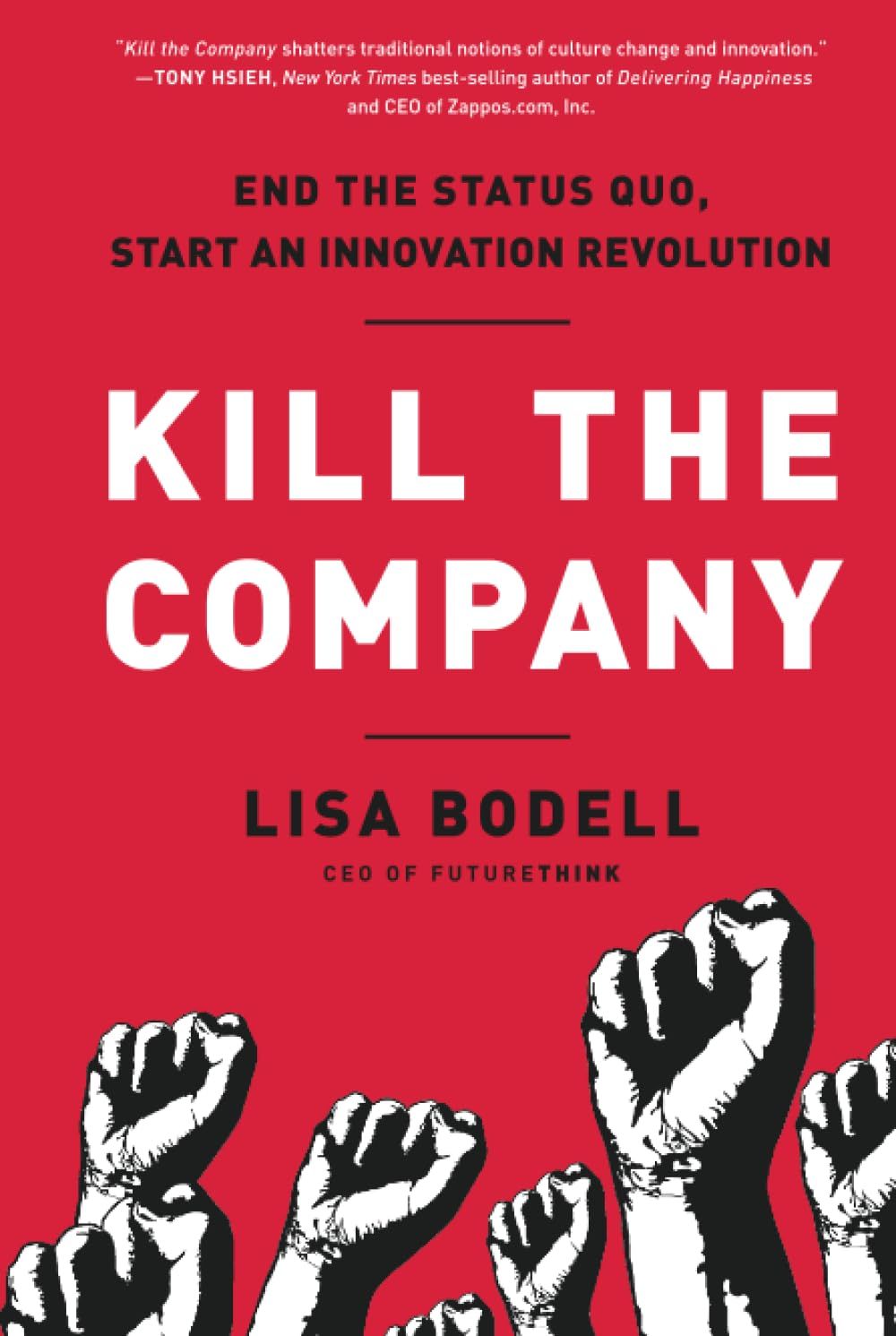Book Review: 'Kill the Company' by Lisa Bodell
Book Review: 'Kill the Company' by Lisa Bodell (Published: 2012).
Overview
In 'Kill the Company', Lisa Bodell presents a compelling argument for why organisations must actively embrace change by eliminating outdated processes, bureaucracy, and complacency. She advocates for a culture of innovation, where businesses continuously challenge the status quo rather than merely maintaining it. Through practical exercises, real-world examples, and actionable frameworks, Bodell provides tools that help companies cultivate a more agile, creative, and forward-thinking workforce.
Key Themes
Eliminating Bureaucratic Waste – Bodell argues that organisations often stifle creativity by clinging to redundant processes and rigid hierarchies. She proposes a "kill the company" exercise, where employees actively brainstorm ways to dismantle their own organisation—forcing them to think about threats, inefficiencies, and areas for transformation.
Encouraging Simplification – Overcomplication is one of the biggest barriers to innovation. Bodell stresses the importance of streamlining workflows, cutting unnecessary meetings, and creating a corporate environment that prioritises efficiency over formality.
Empowering Employees – Innovation should not be confined to leadership; employees at every level should feel encouraged to contribute ideas and challenge outdated practices. The book provides strategies for fostering an open culture where critical thinking and problem-solving are valued.
Making Change a Habit – Rather than treating innovation as a one-time initiative, Bodell argues that organisations must embed adaptability into their DNA. She provides tools and exercises to help leaders sustain a mindset of continuous improvement.
Relevance in 2025
So, a main concern is, does the book still have relevancy over a decade later? Well, despite being published in 2012, I'd argue that 'Kill the Company' remains highly relevant in 2025, particularly in an era marked by (even more) rapid technological advancements, AI integration, and economic uncertainty.
Businesses that fail to eliminate inefficiencies and encourage innovation risk falling behind more agile competitors. And, there are many in every industry!
I need only reference the continuing rise of AI and automation – As AI continues to fundamentally reshape all manner of industries, Bodell’s call for adaptability is, perhaps, more critical than ever. Companies must continuously re-evaluate roles, processes, and skills to remain competitive.
Remote and Hybrid Work Challenges – With many companies still adjusting (and lots of them badly!) to hybrid work models, Bodell’s principles of simplification and efficiency apply directly to modern workplace dynamics. Reducing unnecessary bureaucracy is vital for maintaining productivity across dispersed teams. Oh, how I detest the culture of useless lengthy meeting after meeting.
Corporate Culture and Employee Engagement – In an age where employee experience is a key factor in retention, organisations that foster a culture of innovation and empowerment are more likely to attract and retain top talent. And, that's despite the culture of movement Millennials and Gen Z hold dear.
Disruption in Every Industry – Whether it's the impact of climate change, shifting consumer behaviours, or geopolitical uncertainties, businesses today face constant disruption. Bodell’s emphasis on proactive change rather than reactive survival is essential.
Limitations
While Kill the Company is filled with valuable insights, some critiques include:
Lack of Deep Case Studies – The book offers compelling anecdotes but I feel lacks in-depth analysis of how large-scale organisations have successfully implemented its principles.
Focus on Mindset Over Execution – While the exercises are useful, some readers may find that the book leans more toward shifting corporate mindsets rather than providing detailed roadmaps for execution.

Rating: ★★★☆ (3/5) -Niall MacGiolla Bhuí, PhD.